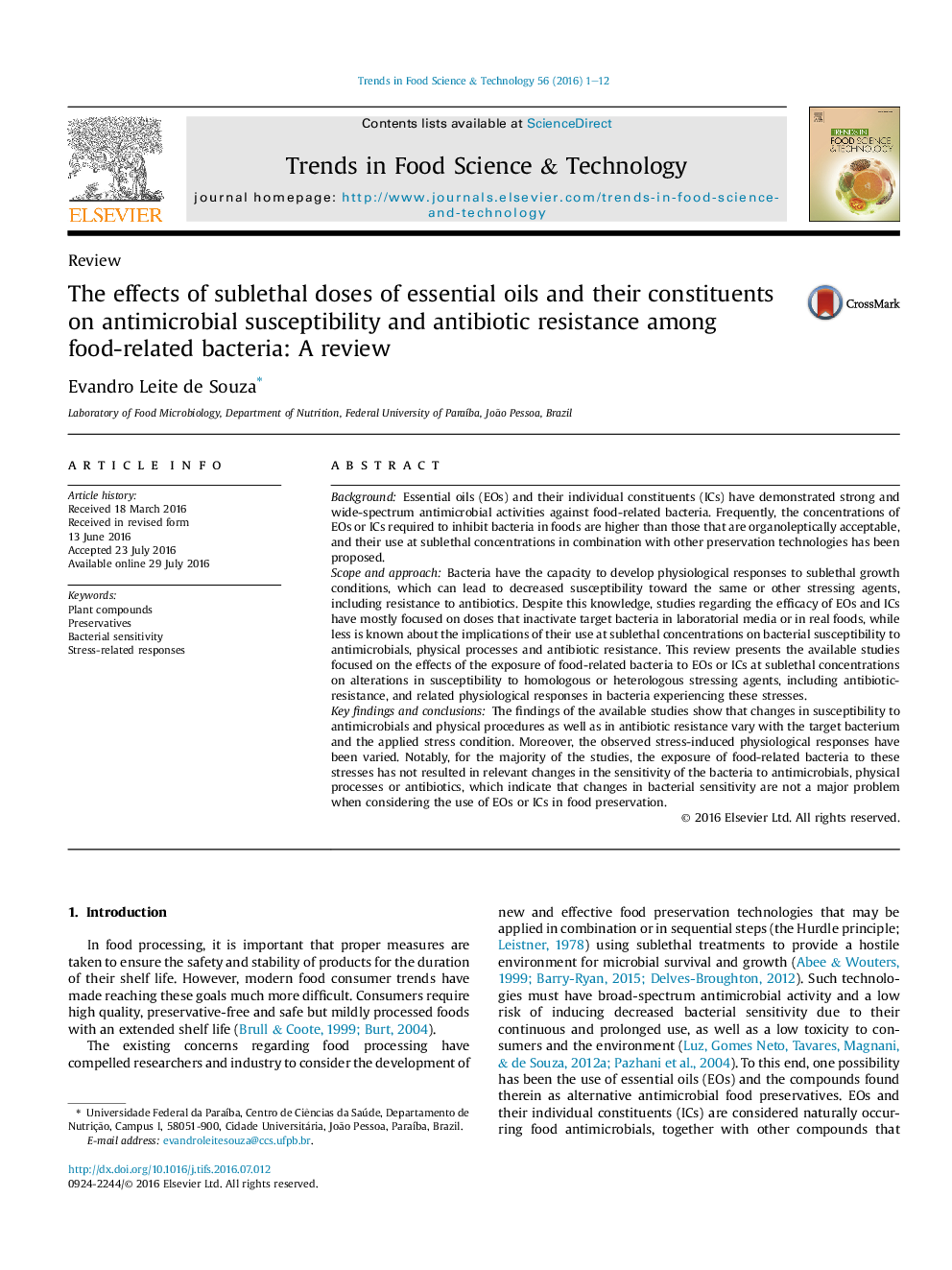| Article ID | Journal | Published Year | Pages | File Type |
|---|---|---|---|---|
| 2098416 | Trends in Food Science & Technology | 2016 | 12 Pages |
•Essential oils (EOs) and individual constituents (ICs) are strong and wide-spectrum antimicrobials.•Bacterial responses to sublethal conditions imposed by EOs and ICs are presented.•EOs and ICs do not induce a common susceptibility or resistance response in bacteria.•EOs and ICs may induce stress-related physiological adaptive responses in bacteria.
BackgroundEssential oils (EOs) and their individual constituents (ICs) have demonstrated strong and wide-spectrum antimicrobial activities against food-related bacteria. Frequently, the concentrations of EOs or ICs required to inhibit bacteria in foods are higher than those that are organoleptically acceptable, and their use at sublethal concentrations in combination with other preservation technologies has been proposed.Scope and approachBacteria have the capacity to develop physiological responses to sublethal growth conditions, which can lead to decreased susceptibility toward the same or other stressing agents, including resistance to antibiotics. Despite this knowledge, studies regarding the efficacy of EOs and ICs have mostly focused on doses that inactivate target bacteria in laboratorial media or in real foods, while less is known about the implications of their use at sublethal concentrations on bacterial susceptibility to antimicrobials, physical processes and antibiotic resistance. This review presents the available studies focused on the effects of the exposure of food-related bacteria to EOs or ICs at sublethal concentrations on alterations in susceptibility to homologous or heterologous stressing agents, including antibiotic-resistance, and related physiological responses in bacteria experiencing these stresses.Key findings and conclusionsThe findings of the available studies show that changes in susceptibility to antimicrobials and physical procedures as well as in antibiotic resistance vary with the target bacterium and the applied stress condition. Moreover, the observed stress-induced physiological responses have been varied. Notably, for the majority of the studies, the exposure of food-related bacteria to these stresses has not resulted in relevant changes in the sensitivity of the bacteria to antimicrobials, physical processes or antibiotics, which indicate that changes in bacterial sensitivity are not a major problem when considering the use of EOs or ICs in food preservation.
